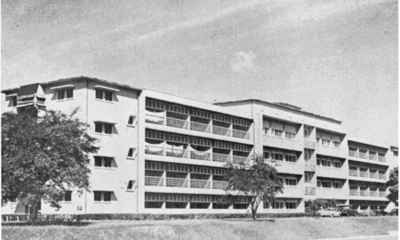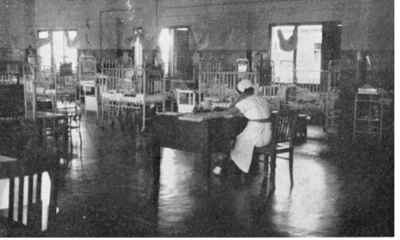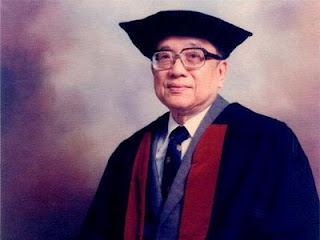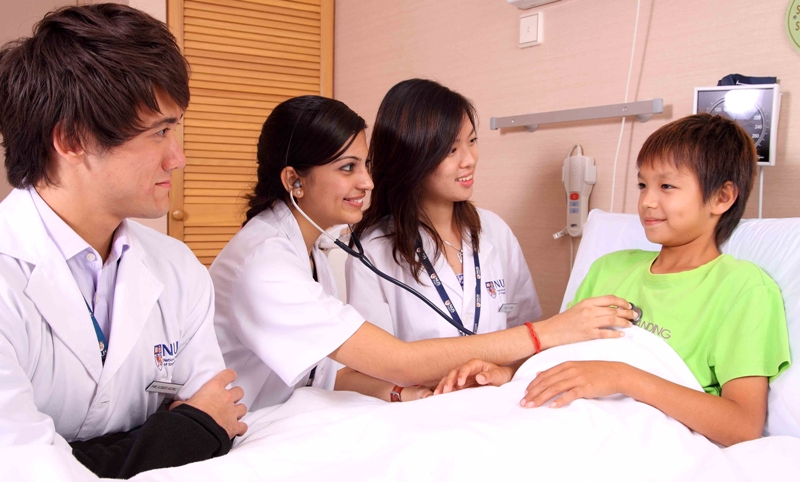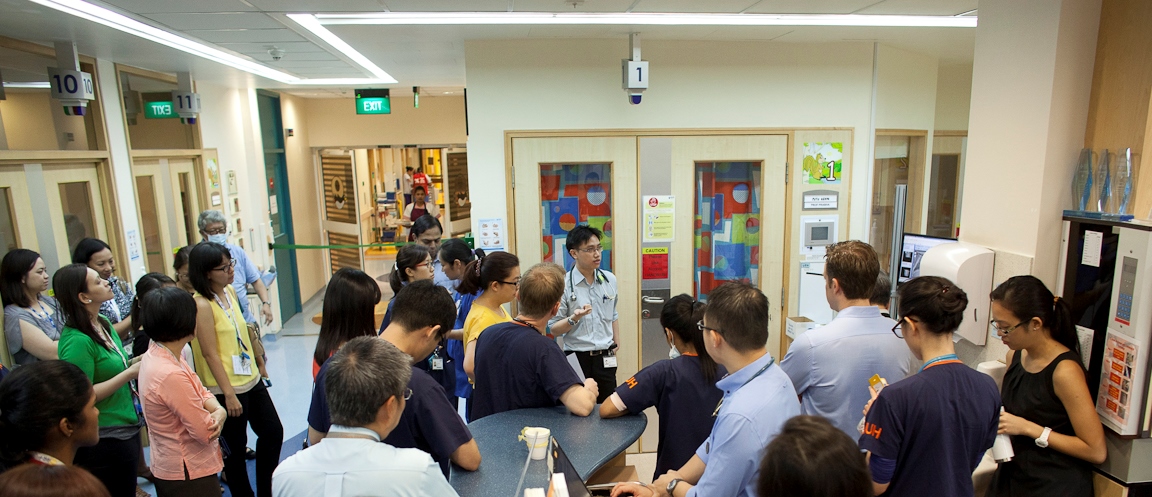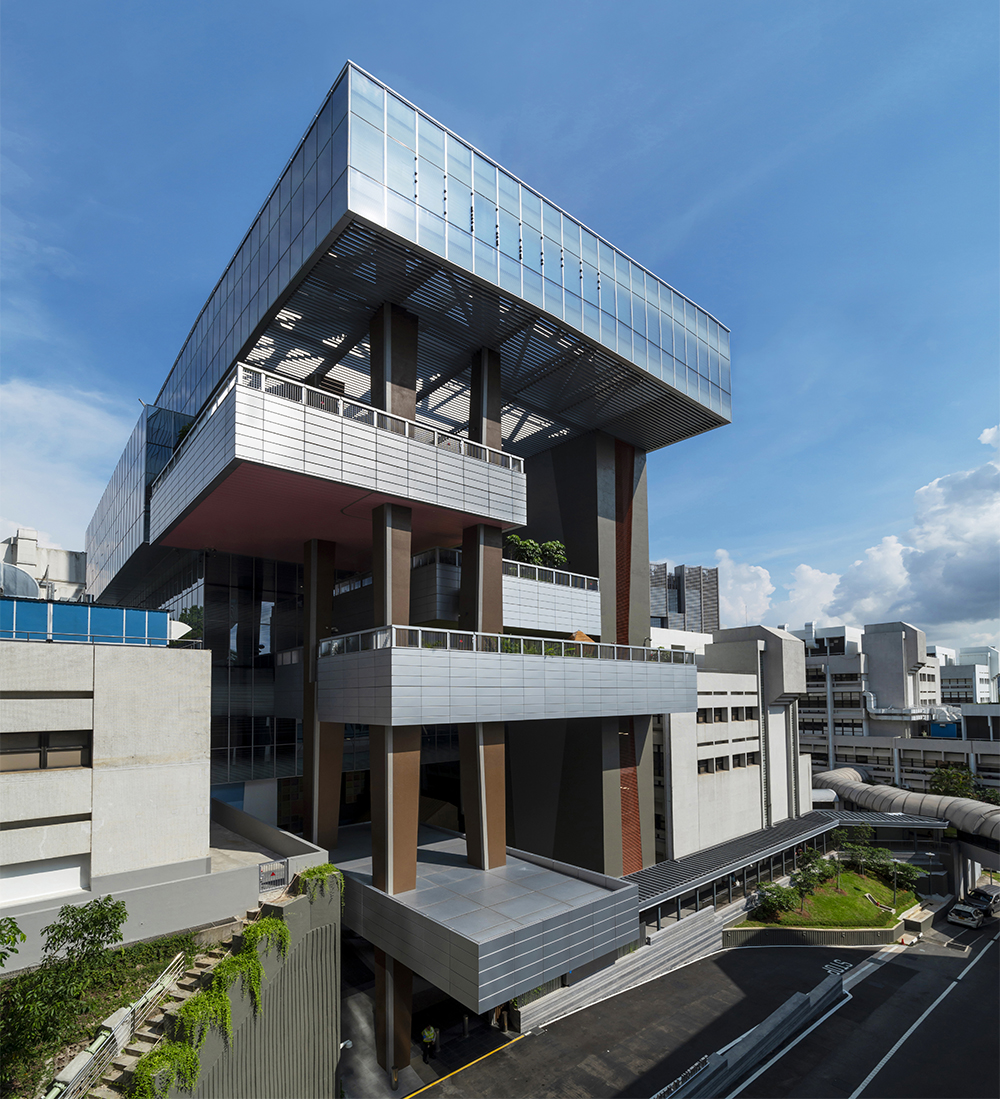
Since 14 January 2019, our outpatient paediatric services have been centralised in a one-stop centre, made possible by a generous donation from the estate of Khoo Teck Puat.
This new centre is designed to create a therapeutic, child-centric and family-friendly environment. The ‘playscape’ design concept, inspired by nature, stimulates a child’s physical, mental and emotional development, encouraging interaction and creativity. This ethos is evident from the moment one enters the arrival atrium, creating a holistic care experience for children and their families.
Connected And Patient-Focused
Our 10-storey outpatient centre stands out with its 14-metre-high arrival atrium. This design ensures a clear separation of vehicular and pedestrian flow for safe access and smooth registration.
The spacious atrium is intuitively arranged to guide visitors arriving by various modes of transports or from other buildings within the Kent Ridge campus. A linkway on the fourth level connects the new centre to the Main Building, integrating it with existing inpatient facilities and services. This design enhances operational efficiency and focuses on two key aspects of the visit: one-stop convenience and a positive experience for children.
Child-Friendly and Family-Centred
Our aim is to make paediatric consultations a pleasant experience for both the child and their caregiver.
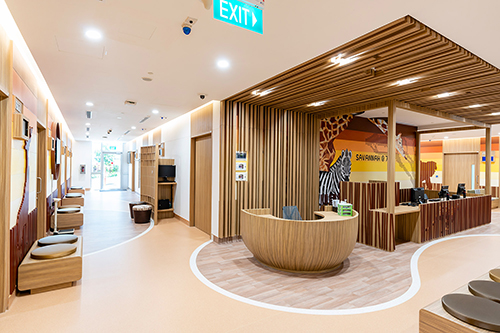
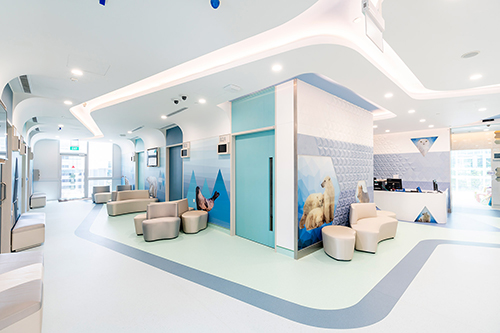
Your child and family will first be greeted with an explosion of colours at our city-themed atrium. The journey to the upper storeys sees a nature-themed reception and waiting areas which will lead to the outdoor playground.
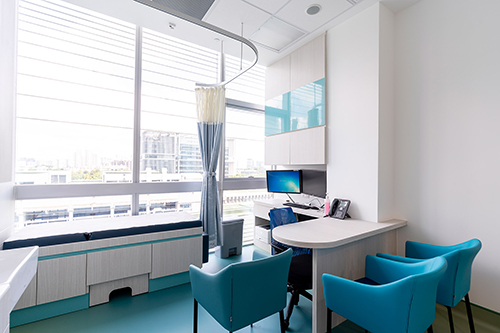
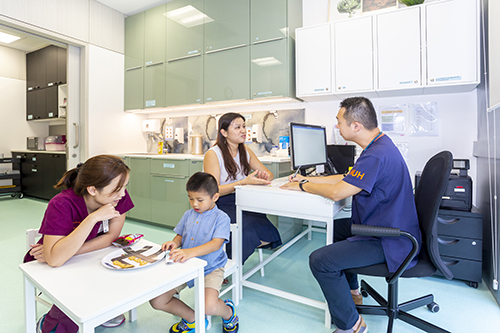
Traditional seating and room configuration are replaced by modular furniture that serve as play objects and resting areas. The sky gardens are adjacent to the waiting areas on every floor. This access to daylight and the outdoors creates a therapeutic environment integral for a healing experience.
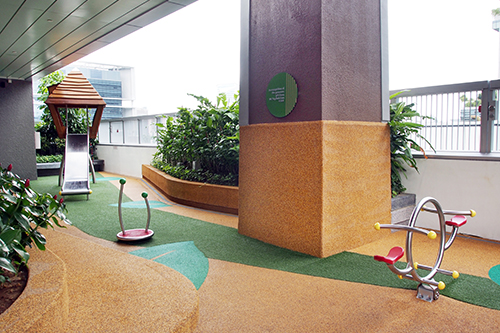
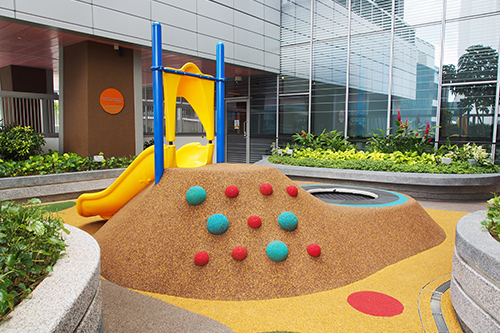
Waiting time is translated into play time in the themed (i.e. rainforest, savannah, arctic) waiting area as the child climbs, crawls, interacts and explores the theme-inspired features within observatory vicinity of the parents.
Our new centre aims to change the experience of a visit to the hospital for both the child as well as the accompanying caregiver. We hope to change the way paediatric care is delivered in Singapore, to elevate healthcare for children and adolescents, and to improve health outcomes for the future.
Directions to Khoo Teck Puat - National University Children's Medical Institute
Click here (PDF, 9.59 MB) for directions on how to get to the Khoo Teck Puat - National University Children's Medical Institute from Kent Ridge Station (Circle Line), where to alight if arriving by car as well as where to park.
Frequently Asked Questions
General
Why did we move? We have consolidated our outpatient clinical services, pharmacy, diagnostic and rehabilitation services within a one-stop centre as part of our expansion plans. The aim is also to create a child-friendly and family-centred environment to enhance the experience of a visit to the hospital for both the child as well as the accompanying caregiver. |
What are the paediatric services not seen in the Khoo Teck Puat - National University Children's Medical Institute? Our Viva-University Children's Cancer Centre will remain at Medical Centre. The Paediatric Day Therapy and Shaw-NKF Children's Kidney Centre will also remain at their current locations. Patients visiting the Dental, Eye, Ear, Nose and Throat or Neuroscience clinics can continue to do so at the respective locations. Paediatric speech therapy communication / services will still be seen at Main Building Level 1, Rehabilitation Centre. |
When do I go to the Khoo Teck Puat - National University Children's Medical Institute for my appointments? If you have been going to Children's Clinic A, Children's Clinic Annex, Baby and Child Clinic or Rehabilitation Centre (paediatrics) for your appointments before 14 January 2019, please proceed to the Khoo Teck Puat - National University Children's Medical Institute for your appointments from now onwards. |
Getting Here
How do I get to the Khoo Teck Puat - National University Children's Medical Institute? Please refer to our directional guide here (PDF, 652 KB) if you are walking from Kent Ridge Station (Circle Line) or arriving by car. Follow the hospital signages to get to our centre. |
If I am coming by train, how do I make my way to the new centre? Alight at Kent Ridge Station (Circle Line) and walk towards the Main Building Lobby B. Make a left turn at the ATM machines and continue walking towards Kent Ridge Wing. Walk towards Lift Lobby 7 of Kent Ridge Wing Level 1. The directional signages will lead you to the new centre. |
Is there a taxi stand or drop-off/pick up point? There is no taxi stand but we have a drop-off/pick-up point at the new centre. If you are using private hire transport (e.g. Grab) or taxi, please indicate 'Khoo Teck Puat - National University Children's Medical Institute' as the location. |
Where is the nearest carpark? You may park at Kent Ridge Wing carpark (Basement and Level 1) or Medical Centre (Levels 5, 6, 7, 7A). |
NUH now has a visitor management system (VMS) to register visitors and patients. Do I have to register myself/my child in order to come for my/my child's appointment at the Khoo Teck Puat - National University Children's Medical Institute? You do not need to register via the VMS if you are coming to the Khoo Teck Puat - National University Children's Medical Institute during our operational hours. |
Amenities
Are there breastfeeding / diaper changing rooms in this centre? There are 7 breastfeeding rooms located at the Lobby as well as on Levels 6, 7 and 8 near the restrooms. |
Where are the nearest food courts? The centre does not have F&B outlets. There are 2 Kopitiam Food Courts located at Main Building Level 1 and Medical Centre Level 5 respectively. |
Where are the nearest ATM machines? ATMs for POSB, UOB and OCBC are located at Main Building Level 1. Click here for more information on other amenities in the hospital. |
Appointments
Will there be an SMS reminder to prompt me for my/my child's appointment? Yes, you will receive the standard SMS reminder about 3 working days before your appointment. It will indicate 'Khoo Teck Puat - National University Children's Medical Institute' on the SMS. |
How will I be notified of the change in consultation venue? Your SMS reminder for upcoming appointments, referral card or letter will reflect the name of the new building. |
Who should I contact to change my appointment? Please call the main appointment hotline at 6908 2222 or email to [email protected] to change your appointment. |
Patient Journey
Khoo Teck Puat - National University Children's Medical Institute will be adopting the 1-Queue System. It is an integrated system that generates one queue number which lists down all the service points for your appointment.
When you arrive, you will receive one queue number upon registration. This queue number is the same number throughout your appointment from registration to payment. The ticket will list down the location(s) of your consultation and/or procedures. Your last stop is the pharmacy if you have medicines to collect before making payment. This will help to streamline processes for a smoother patient journey with us.

